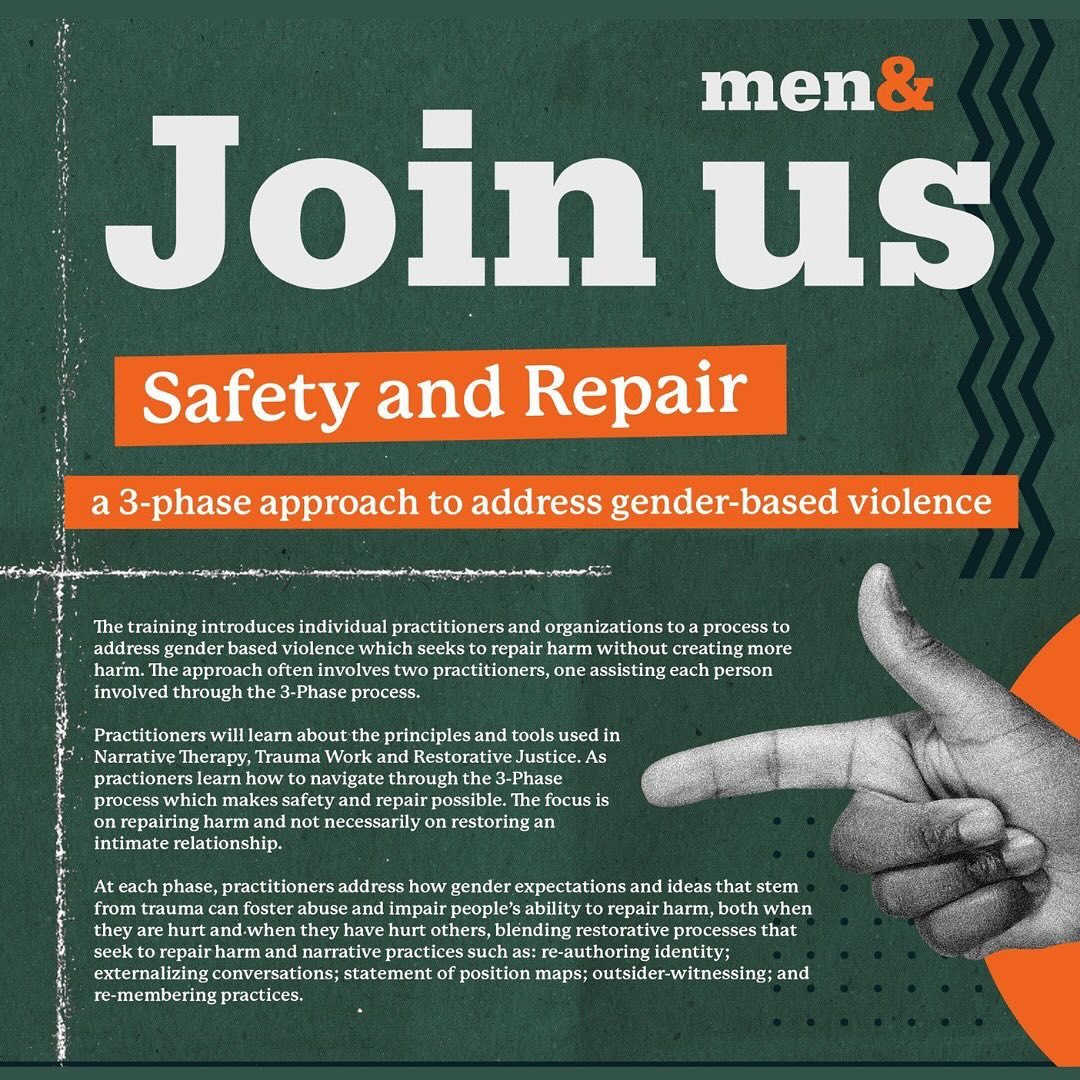
- This event has passed.
Safety and Repair with Men: A Workshop with Tod Augusta-Scott
Safety and Repair – a 3-phase approach to address gender-based violence
The training introduces individual practitioners and organizations to a process to address gender based violence which seeks to repair harm without creating more harm. The approach often involves two practitioners, one assisting each person involved through the 3-Phase process.
Practitioners will learn about the principles and tools used in Narrative Therapy, Trauma Work and Restorative Justice. As practioners learn how to navigate through the 3-Phase process which makes safety and repair possible. The focus is on repairing harm and not necessarily on restoring an intimate relationship.
At each phase, practitioners address how gender expectations and ideas that stem from trauma can foster abuse and impair people’s ability to repair harm, both when they are hurt and when they have hurt others, blending restorative processes that seek to repair harm and narrative practices such as: re-authoring identity; externalizing conversations; statement of position maps; outsider-witnessing; and re-membering practices.
Tod Augusta Scott is known internationally for his work with gender-based violence, narrative therapy and restorative justice. He has worked as the lead therapist and Executive Director of Bridges – a domestic violence counselling agency since 1993. He developed the Safety and Repair approach to addressing gender-based violence in community and employment settings. He has presented his work internationally as well as in every province in Canada. He is widely published in the field and the co-editor and author for two critically acclaimed books. His work has been heighted in the documentary A Better Man (NFB, 2017). For his work in the field, he received recognition awards from the Canadian Social Work Association and the Department of National Defence (Canada).
